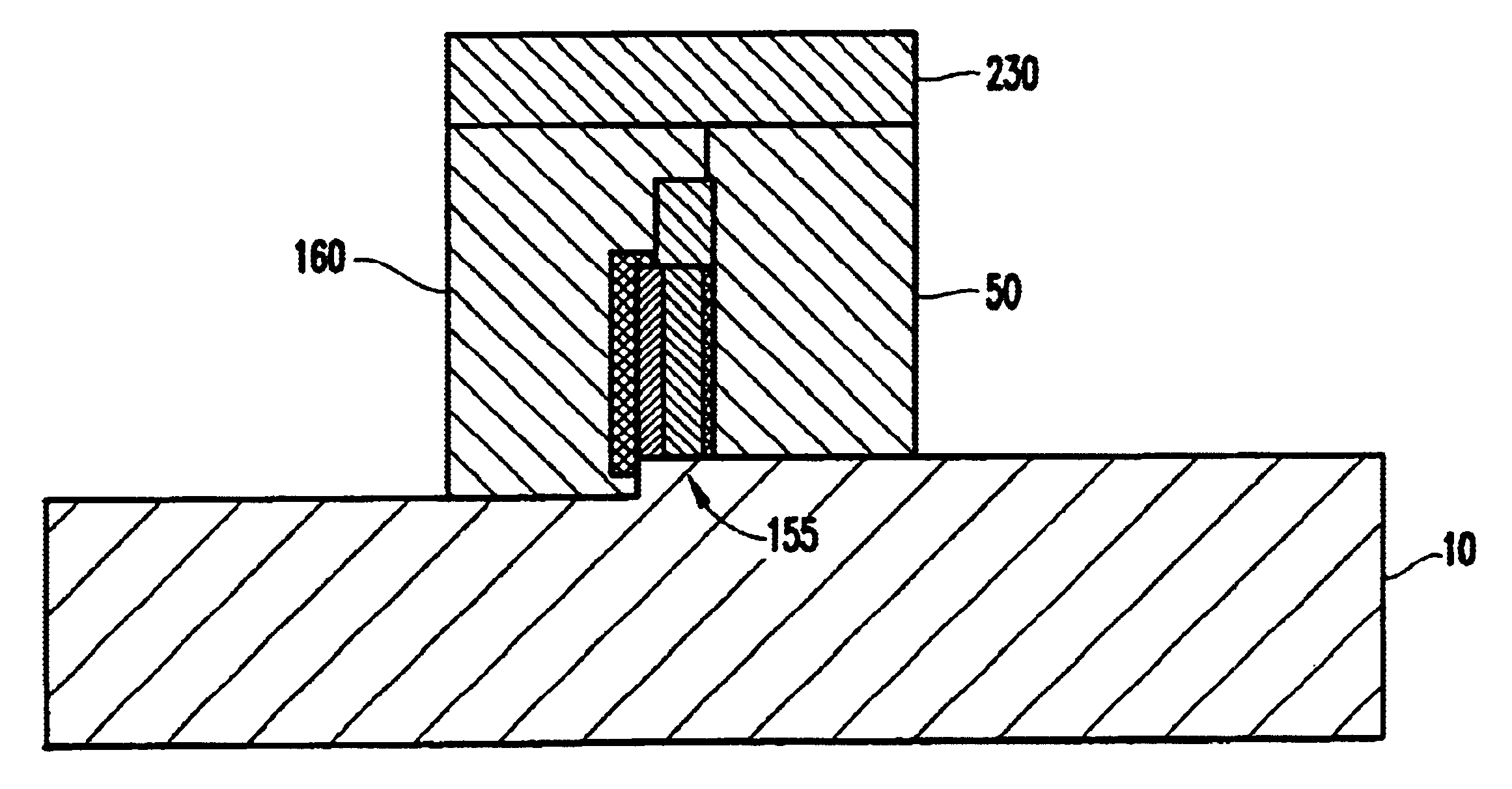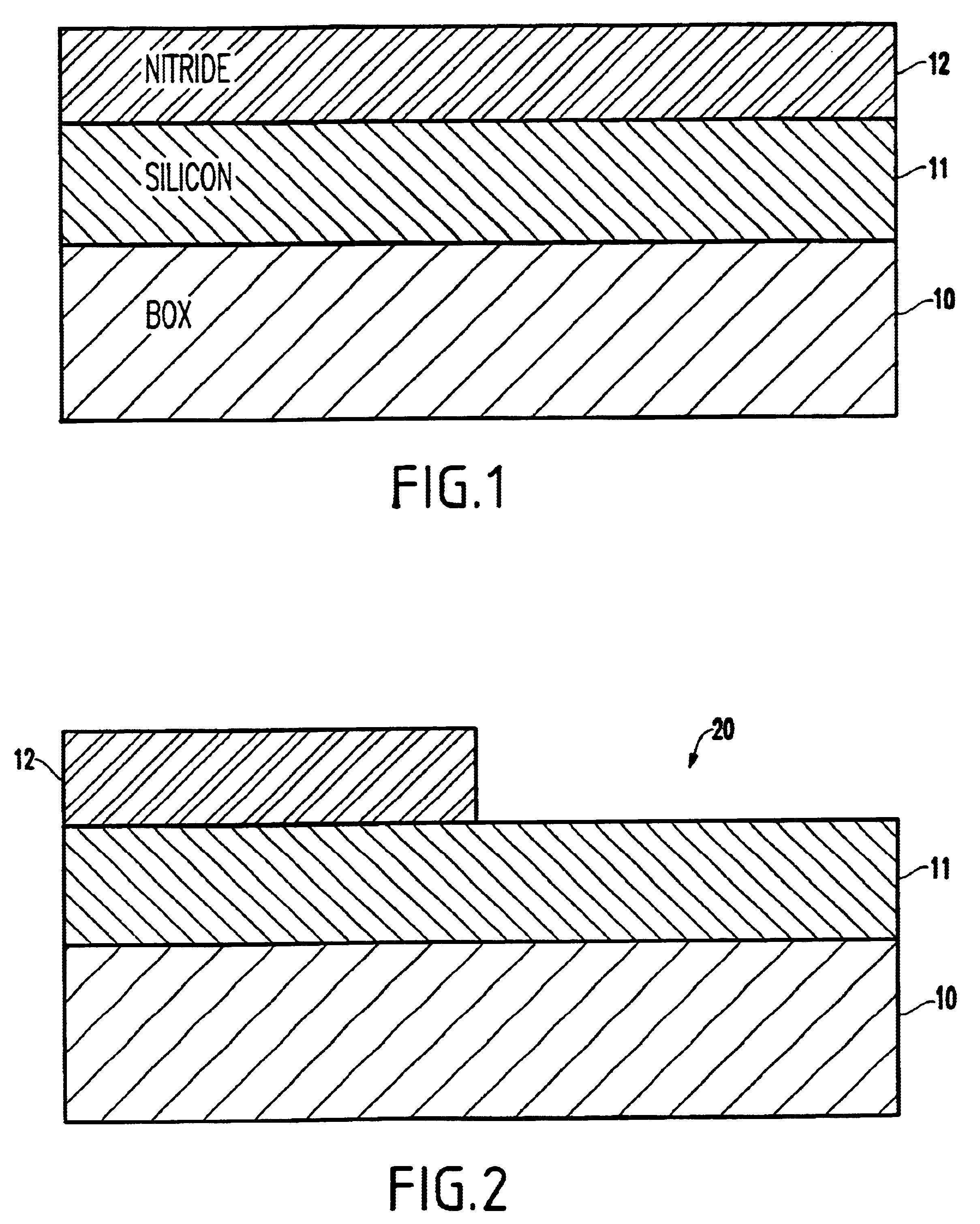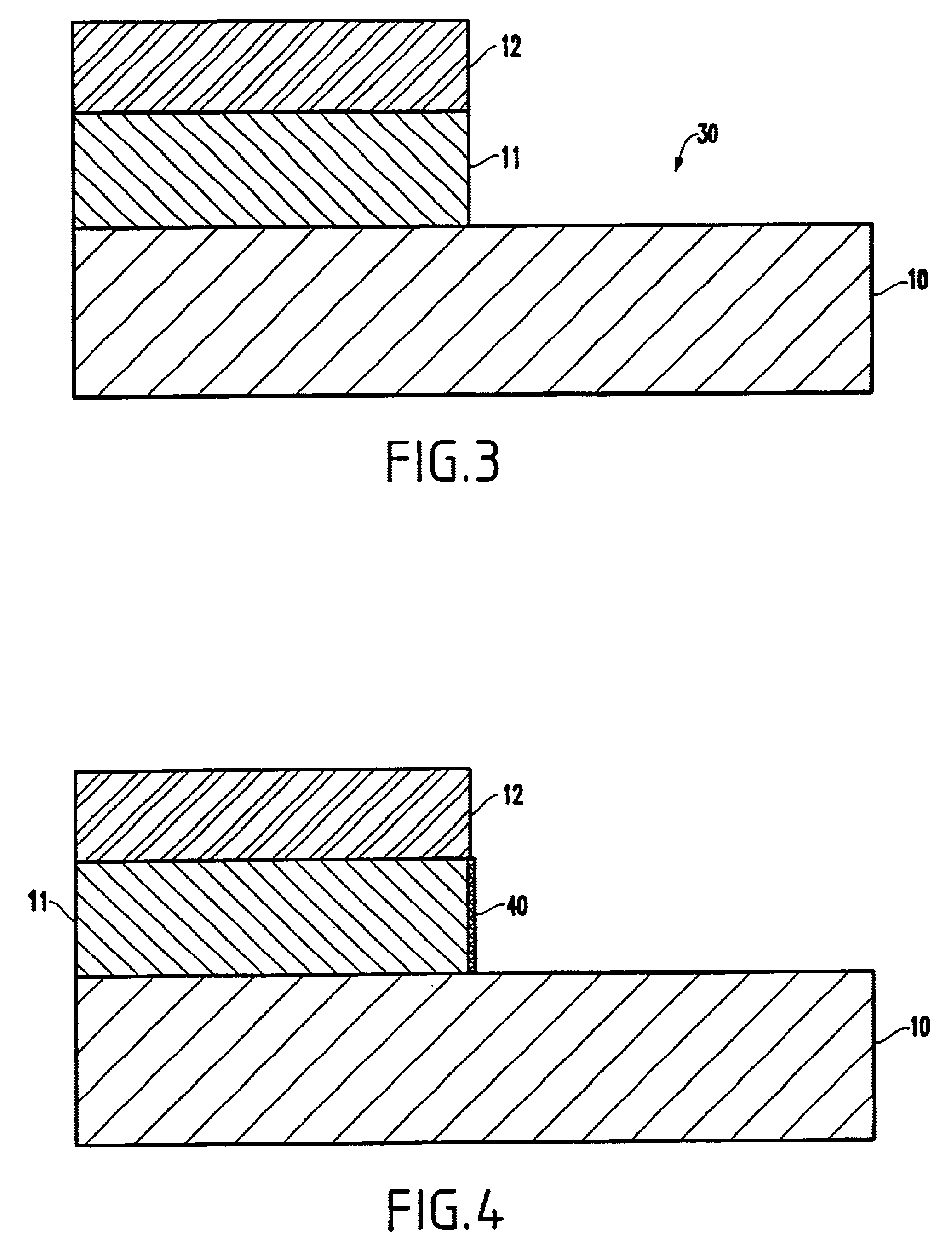Strained fin FETs structure and method
a technology of fin fets and strained fins, which is applied in the direction of transistors, semiconductor devices, electrical equipment, etc., can solve the problems of reducing performance and/or reliability, several difficulties arise in the design and fabrication of double gated cmos transistors, and it is difficult to reliably fabricate one with reliable performance and minimum feature siz
- Summary
- Abstract
- Description
- Claims
- Application Information
AI Technical Summary
Benefits of technology
Problems solved by technology
Method used
Image
Examples
second embodiment
While the invention is described above with respect to an asymmetric strained Fin FET, it is equally applicable to a symmetric strained Fin FET. More specifically, as shown in FIGS. 29-31, the processing necessary to create a strained symmetric strained Fin FET in accordance with the invention starts with a SOI structure having a SiGe layer 300 above and insulator 10 (this is shown in FIG. 29). The SiGe layer 300 is selectively patterned, as shown in FIG. 30. Then, a silicon layer 315 is grown on the SiGe layer 300 to create a strained structure. A thermal oxide 320 is then grown on the silicon layer 315. Next, the gate conductors (e.g., polysilicon) 310 are deposited, planarized, and patterned to form the gates surrounding the body structure 155. In one embodiment, the gate conductors 310 have the same doping concentration and material makeup. However, in a different embodiment, the gate electrodes 310 can be made asymmetric with, for example, an ion implant, to result in an asymme...
first embodiment
The formation of a Fin FET according to the invention is shown in FIGS. 1-28. Processing begins as shown FIG. 1 where a silicon over an insulator (SOI) structure includes an insulator 10 such as a buried oxide layer with an overlying silicon layer 11. A placeholder layer 12 (such as a nitride, etc.) is deposited over the silicon layer 11. This structure is then patterned using well-known conventional patterning processes, as shown in FIG. 2, to remove a portion 20 of the placeholder layer 12. A subsequent etching step removes any corresponding portion 30 of the silicon layer 11 not protected by the placeholder 12, as shown in FIG. 3.
In FIG. 4, an oxidation process grows a gate oxide layer 40 on the silicon 11. Next, polysilicon 50 is deposited over the structure, as shown FIG. 5. The polysilicon 50 is of one dopant type (e.g., N+ doped polysilicon, etc.). In FIG. 6, the structure is planarized using, for example, a chemical mechanical polishing (CMP) process to form planar layer 60....
PUM
 Login to View More
Login to View More Abstract
Description
Claims
Application Information
 Login to View More
Login to View More - R&D
- Intellectual Property
- Life Sciences
- Materials
- Tech Scout
- Unparalleled Data Quality
- Higher Quality Content
- 60% Fewer Hallucinations
Browse by: Latest US Patents, China's latest patents, Technical Efficacy Thesaurus, Application Domain, Technology Topic, Popular Technical Reports.
© 2025 PatSnap. All rights reserved.Legal|Privacy policy|Modern Slavery Act Transparency Statement|Sitemap|About US| Contact US: help@patsnap.com



